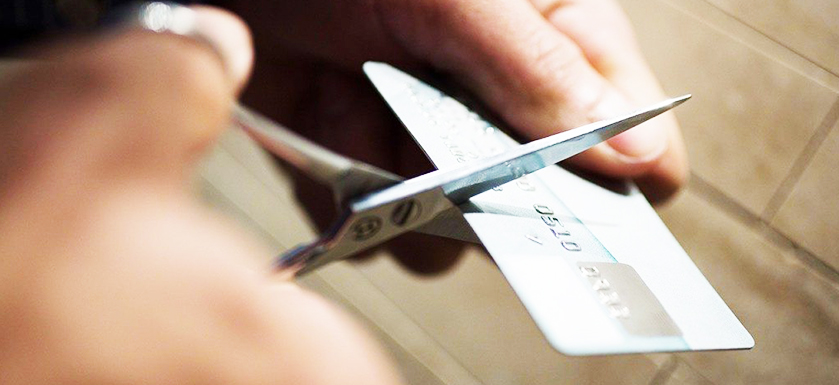DEBT CONSOLIDATION: HOW TO REDUCE YOUR PERSONAL DEBT
What Is a Debt Consolidation Loan?
A debt consolidation loan is financing used to pay off several high-interest debts with one low-interest loan. It is a strategy to simplify bill paying – and save money -- for consumers dealing with numerous unsecured debts like credit cards, medical bills or personal loans.

Consumers roll their unsecured debts into a single bill and use the consolidation loan to pay off the total amount owed. The advantages are that debt consolidation loans usually carry a lower interest rate and there is only one check and payment date each month.
Banks, credit unions and online lenders are the main sources for debt consolidation loans, but relatives or friends also can be a source. These loans carry a fixed interest rate, with monthly installments, and usually last from 2-5 years, depending on the amount borrowed.
How to Get a Debt Consolidation Loan
Consumers will find debt consolidation loans available at familiar places – banks, credit unions, online lenders – but it makes some sense to do research and comparison shop before using this route to eliminate debt.
It is important to understand that debt consolidation loans don’t eliminate debt. They restructure the debt, hopefully in a more favorable way for the consumer, but you still end up paying back what you owe.
Before looking for a debt consolidation loan, do some homework that should make the process easier and the chances for success much higher:
- Identify the bills you want to consolidate. Secured debts – like mortgages, auto or boat loans – don’t qualify for consolidation. Debt consolidation loans deal almost exclusively with credit card debt.
- Examine your budget. How much of a monthly payment can you comfortably afford after taking care of the necessities for housing, food, transportation, etc.?
- Order your credit report. It’s free and it will note all your debts, including some you may have forgotten.
- Check your credit score. It’s also available free via numerous online sources. It will be a factor in some of the loan options so know where you stand and be realistic about what to expect.
Make sure when you start comparing lenders that you get the total cost of borrowing from each one. Compare that to your current costs before making a final decision on a debt consolidation loan. If you haven’t lowered your monthly payment and interest rate, a debt consolidation loan is not the right move.
Secured vs. Unsecured Debt Consolidation Loans
The truth of the matter is that debt consolidation loans are just another name for personal loans and there are two types available – secured and unsecured – with many variations under each category.
A secured debt consolidation loan – just like a secured personal loan – is backed by collateral such as home, car or property and is the easiest route to consolidation.
Unsecured loans are those backed only by the borrower's promise to repay. If you want to go the unsecured loan route, add online lenders to the list of possibilities.
Secured Loan: positives and negatives
- + Easier to obtain from a lender
- + Higher borrowing amount allotted
- + Lower interest rate
- + Check your credit score.Interest may be tax deductible
- - Longer repayment terms (higher cost in interest over time)
- - Risk of losing collateral such as house or car
Unsecured Loan: positives and negatives
- + No asset risk
- + Shorter repayment term (lower cost in interest over time)
- - Harder to obtain from a lender (high risk borrower)
- - Lower borrowing amount allotted
- - Higher interest rate
- - No tax benefits
Types of Debt Consolidation Loans
There are four major forms of debt consolidation loans: Home equity loans; credit card balance transfers; loans from family or friends; and unsecured personal/debt consolidation loans.
Here is a look at the pros and cons of each type of loan.
Home Equity Loans
If you have equity in your home – using a home equity loan for debt consolidation could be the best route for eliminating credit card debt.
The interest rates on a home equity loan should be substantially less than what you pay the credit card companies. In February of 2019, the interest rate on home equity loans was around 5.5% (even less in some places) while the average interest rate on credit cards was 17.5%.
If you owed $15,000 on credit cards and tried to pay them off with a home equity loan in five years at 5.5%, your monthly payment would be $286.52 and you would have paid a total of $2,191 in interest.
The same $15,000 paid off over five years at the average credit card interest rate of 17.5% would mean monthly payments of $376.83 and total interest paid of $7,609.
That’s $5,418 in savings over five years!
Of course, the amount of equity you have in your home (home’s current value minus what is owed) determines how much you can borrow, but it should be enough to cover the credit card bills.
Credit Card Balance Transfers
The least expensive choice for a debt consolidation loan probably is a 0% interest balance transfer card. These cards allow you to transfer the balance from all your credit cards and pay them off with no interest for an introductory period ranging from 6-24 months.
There are three major concerns about balance transfer cards as debt consolidation loans:
- Will you qualify for one?
- How much in fees will you pay to get one?
- And will you be able to pay off the debt before the 0% offer expires?
To qualify, you will need an excellent credit score (740 or higher) for the best deals (18-24 months at 0% interest) and at least a 680 or higher score to qualify for any of the rest (6-18 months at 0% interest).
Any score under 680 and it’s unlikely you will get a 0% interest rate. If you do, the introductory period will be shortened to six months.
There also is the matter of balance transfer fees. Most cards charge 2%-3% of the amount owed. If you owe $10,000 on four or five cards, that means another $200-$300 added to your bill.
Which brings us to the big question: Can you pay off your entire debt in the time frame allowed? If you don’t, the regular interest rate kicks in and the range in the fall of 2018 was somewhere between 14% and 26% on your balance.
Once again, do ALL the math, before deciding this is the right way to eliminate credit card debt.
Loan from Family or Friends
If you have equity in your home – using a home equity loan for debt consolidation could be the best route for eliminating credit card debt.
It’s also the option loaded with potholes that makes things so uncomfortable among family and friends that you wonder why you ever did it.
The plus side of getting a consolidation loan from a family member or friend is that they are not competing with another lender so they can set the interest rate however low (or high) they want. The loan could even be at 0% interest.
The same goes for the terms. The loan can be for any length of time and shortened or extended whenever necessary.
Whatever the terms, it should be a win/win agreement that serves both sides. It should spell out the obligations in simple terms and, most importantly, it should be written down in case things get dicey.
Paying off credit cards at a cheap rate is not worth losing a long-term relationship. If you choose this path, go slowly and carefully.
Personal Loans for Debt Consolidation
Personal and debt consolidation loans are different names for the same thing: an unsecured loan that comes with an interest rate based on credit score.
It can be a worthwhile solution for consumers with heavy debt that is spread out over several credit cards. Essentially, this loan allows you to pay credit card debts in full. A new, large loan replaces several smaller ones.
Taking out a consolidation loan is beneficial in the following ways:
- May reduce the number of collection calls you receive from multiple creditors
- Allows you to make one monthly payment to one source
- Provides you the opportunity to improve your credit score over time by making timely payments
However, if you have a low credit score or dings in your credit report, you may not be approved for consolidation loan. Rates for consolidation loans in February of 2019 ranged from 6% to as high as 36%, so even if you are approved, your rate may be so high that it doesn’t make sense when compared to what you currently pay.
Will Debt Consolidation Loan Affect My Credit Score?
A debt consolidation loan can provide an opportunity to improve your credit score if you use it as a financial plan, as opposed to just shifting debt around. When you take out your consolidated loan, your credit card debt will be paid in full and you will focus on paying down your single, new loan.
If you need to take out a consolidation loan, it is safe to assume that your credit has already taken a hit with delinquent payments. Timely payments on the new loan will start to positively impact your credit rating over time.
If you don’t have a strong credit rating, talk with a credit counselor at a nonprofit credit counseling agency to review other options. They may recommend a debt management program that will help you set up a budget and pay off the debt within 3-5 years
Be aware that not every financial problem can be solved through a debt consolidation program. There are some situations where debt settlement or even bankruptcy are the best solution to the problem.
Helpful Tips to Remember When Entering into a Debt Consolidation Loan Agreement
- 1. Do your research. Different banks offer competitive loan rates and varying repayment terms. Keep your options open. Credit unions, most of which have easy membership qualifications, can contend with the bank’s competitive rates as well.
- 2. Stick to a budget. Before you settle on your consolidation loan’s monthly installments, measure your income against your expenses to determine a realistic monthly payment.
- Make the loan a top priority. Pay off the consolidation loan before taking on new financial responsibilities. In other words, don’t inquire about your eligibility for new credit card promotions or run up any additional debt on your existing cards, as both of these will have a negative effect on your credit score.And will you be able to pay off the debt before the 0% offer expires?



